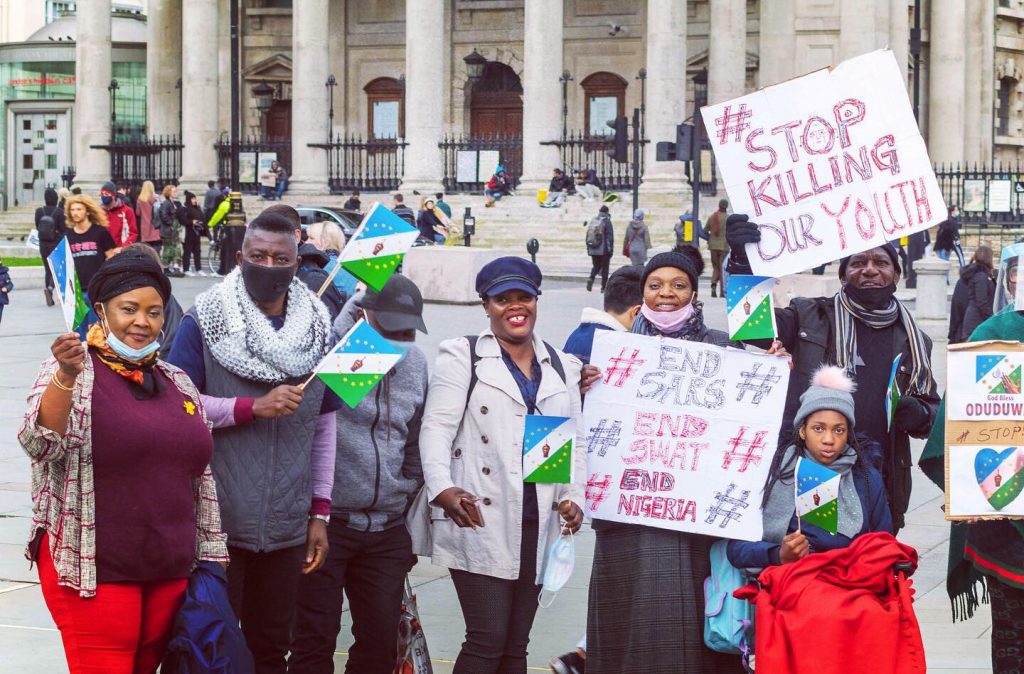Photo Credit | By Flickr
By Shanaé Harte
As a Nigerian native, Omoniyi Sulu looks at the devastating state of her home country, she feels hurt, dejection, and vexation. The place that once provided her comfort is now the place filled with fear and confusion.
Why is she feeling these negative emotions towards her country? Four words: Special Anti-Robbery Squad (SARS).
The squad, commonly referred to as SARS, was created by the Nigerian government in an effort to minimize crime. And yes, SARS did their job efficiently when they assumed power in 1984, but it did not take long for them to become the very thing they were trying to prevent.
Abuse. Torture. Rape. These are some of the injustices that Nigerian men, women, and children have encountered through a system put in place to protect them. There are no particular reasons why these acts are committed. This has just been a case of abuse and misuse of power.
“The SARS was created to help people but they have turned their backs on those very people,” said Sulu. “They judged and tortured people based on what they wore, how they looked, and the cars they drove. The system just needs to change.”
Nigerians who share this same sentiment took to the streets early in 2017 to show their disapproval of the very corrupt system. As these peaceful protests gained momentum, the situation became chaotic as the SARS forces turned against the civilian population.
Peaceful protests led to wide-scale strikes, bloodshed and murder. The SARS members could not stand seeing people defending themselves. Even if the SARS members believed they were helping the country before, it became evident what their true agenda was-keeping the country in line, according to their standards, and having things conducted in a way that only satisfied themselves.
The beautiful sight in this horrific scene has been the persistence of the Nigerian people. Though bullets were escaping gun barrels, tear gas bombs were soaring with the birds and many were being whipped in public by SARS members, protests continued to happen. The people of Nigeria continued to march in the streets shouting “End SARS”
The persistence in the protesting by her people made Sulu proud.
“During my mom’s generation, they never had the ‘balls’ to protest,” said Sulu. “But now, I’m seeing a big difference…people are finally challenging the government by protesting.”
According to a 2019 report by the United Nations, more than 30 percent of citizens who were surveyed said they had paid a bribe to a government official over the previous year.
Muhammadu Buhari, the president of Nigeria since 2015, rose to power amid promises of reform. After the recent protests he promised to bring an end to SARS and do extensive reforming of the police. But this is not the first time that unfulfilling promises have been made to the people of Nigeria by the government. There is no guarantee that this time changes will be made.
Sulu lacks faith and trust in the current government and believes that the only change that should be made is a change in government.
“The government officials only care about themselves,” said Sulu. “I believe youth need to take over so that Nigeria can become a place where people are able to experience freedom.”
Though protests began in 2017, it was not until Oct. 3 of this year that viral videos began to swarm the internet. The sharing of videos and images labeled ‘What’s Happening in Nigeria’ did a spectacular job of raising awareness for the country. From these posts and shared content, the world was able to recognize that Nigeria was in dire need of help. Petitions began to be created and signed by millions across the world. Donations were sent to families and civilians in need. Hashtags were formed to promote bringing an end to SARS.
This wide social media attention caused the government to try to resurrect a 2015 social media bill that would allow civilians to be fined or jailed if ‘misleading content’ about the government was shared via social media.
So, even though the Nigerian government may not like it, Sulu urges people like us to keep using our ‘pens’ and do all that we can to bring as much awareness to her country’s state, and hopefully, something beneficial will be done about it.
“I certainly think signing petitions would help bring awareness to our situation and hopefully, that will get us more attention and eventually the help we need,” said Sulu.


